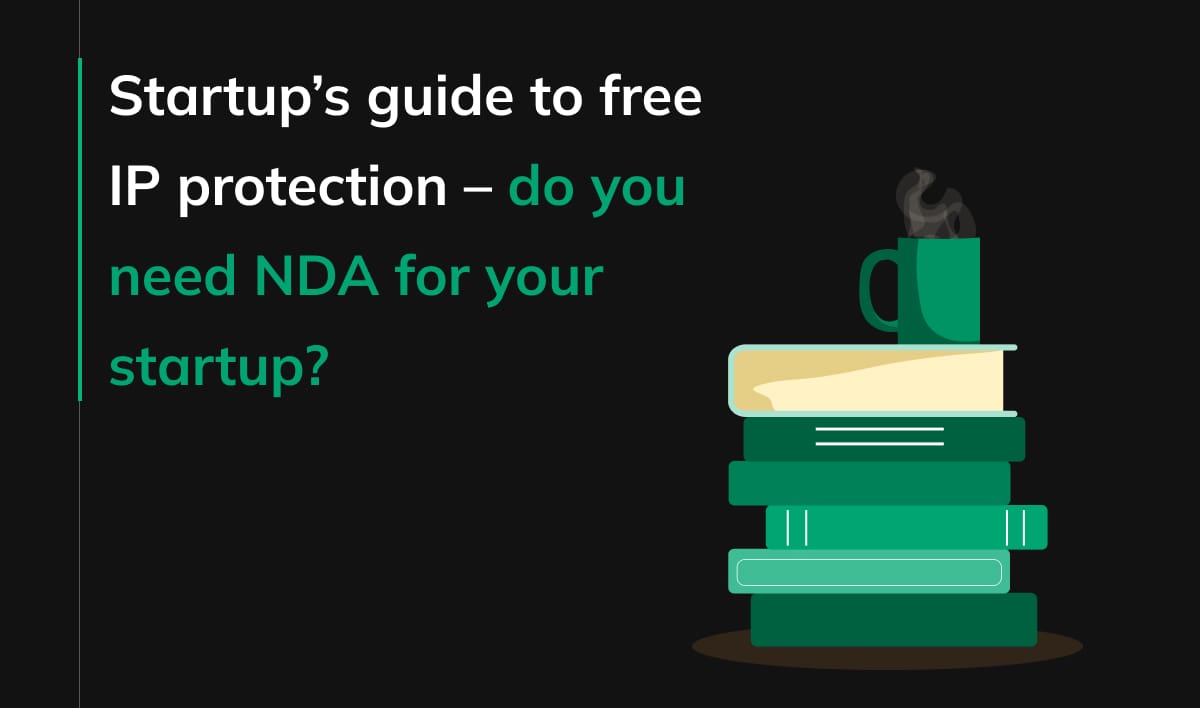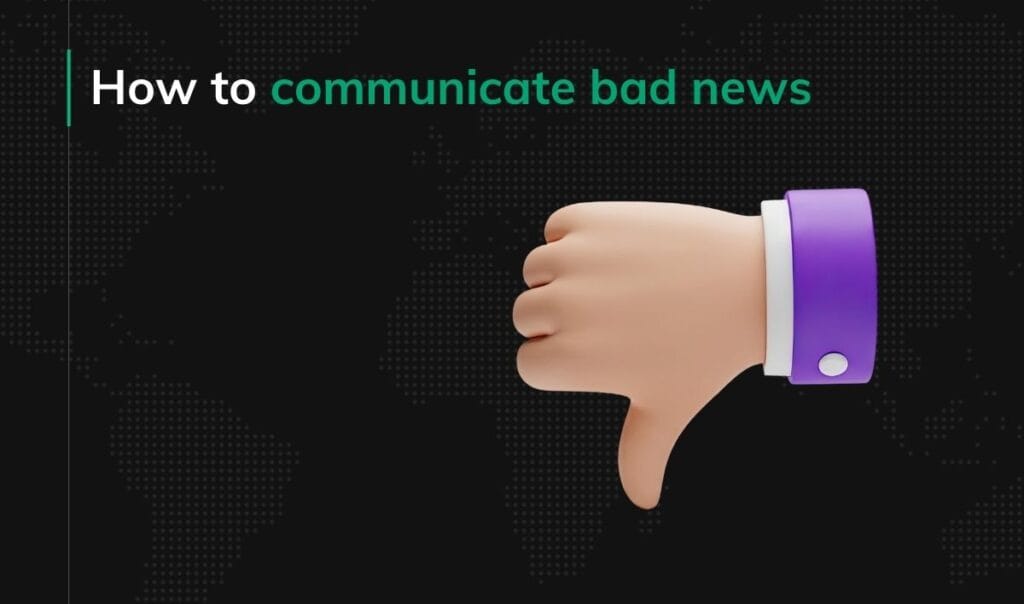Startup’s guide to free IP protection – do you need NDA for your startup?

Can you be 100% sure that your app concept will not leak to the public? How can you protect confidential information?
In ancient times, inventors could not be sure not only of their ideas but even of their lives. Over the centuries, the rulers protected the new visions quite effectively. Creators were killed or locked up to wither and die so that the sovereigns could use their concepts exclusively.
Fortunately, this is not the case anymore. Long live the society of opportunities! We have tools, knowledge, skills and various applications that make our daily lives more accessible, functional, comfortable and safe. What a relief, isn’t it?
It might seem it’s all just downhill. Nevertheless, to this day, startup founders struggle from the very beginning with the question: “What if others disclose or steal my vision? How to defend my own confidential information effectively?”.
A good application can become a profitable business in today’s world. The race is on, they think, and it’s like revealing the winning betting numbers at the concept stage.
Can we discuss such a phenomenon as idea stealing?
In this article, we highlight that there are billions of startup ideas, including thousands of them comparable to each other.
A clash with reality awaits. First, face the fact you’re never the only one creating a similar solution (these are really rare cases!). That is why it is difficult to talk about stealing the idea itself.
What is more, business practice shows that innovative concepts are essential but not worth much on their own. You may be conceiving a revolutionary innovation, but it is useless unless you execute it.
What adds value to your vision is work, competencies, technology and product development, business, implementation and market entry strategy, resources availability, the importance for the audience and a well-thought financial plan.
All that stuff that provides leverage for startups to make them competitive, encourages them to take advantage of every opportunity that comes their way and makes them turn concepts into viable businesses.
Can you protect the app vision? Is it confidential information?
App ideas are not as simple to protect as they might seem! Let’s put it bluntly: There are no magic shields or common remedies that can guarantee 100% secrecy and defend you against disclosing confidential information to the public domain. And there is no perfect document that will give you and the other counter-parties complete security and autonomy of action at the same time.
First, you can’t protect only the idea as confidential information as it is not subject to legal protection. You can’t prevent others from building on it before you do.
However, if you already work on your app and have more than just the thought, then, at that point, you can conduct legal moves to keep others from copying what you’re doing and minimize the risk of damages.
In short, you need to assess at what stage you are. Why? Because it will determine your possibilities.
Generally, the law recognizes two groups of provisions available – free and paid.
The free ones include:
- copyright
- trade secrets
- non-disclosure agreements
- non-compete agreements
How can you protect your intellectual property (IP) with COPYRIGHT?
When the startup founder begins to consider preventing IP from being disclosed or stolen, it is one of the first terms that come to mind. But is it possible to copyright an app idea?
The idea itself is not a subject of copyright law.
Copyright is an IP right that covers only apps’ tangible expressions. It means applications have the basic legal protection against direct copying and reverse engineering limited to source code (e.g. algorithms), design (e.g. terms of reference), and UI (e.g. interface arrangements) as computer programs. Particular aspects may vary depending on the jurisdictions, though.
It means for rights holders that anyone can create an app with close functionalities to their innovative concepts if they use a different source code.
That is why most apps launched today are based on existing solutions and resolve more or less similar issues, target a comparable audience and feature with the same principles of operation.
Practical tips:
- Copyright law arises automatically (no legal requirement for registration), as soon as the work is created and expressed in tangible form.
- If you cooperate with a software development partner (software house or a freelancer), make sure your product development agreement (or other agreement) states you own the copyright of the code at the end of the project – once you have paid the final invoice.
- You may benefit from copyrights when someone copies your app without making any variations. If you suspect a person/ other companies steal your intellectual property, you can demand to stop infringing and consider further legal action (infringement can relate to the whole or a substantial part of your app).
How can you protect your IP as a TRADE SECRET?
Trade secrets are intellectual property rights on confidential information – technical, technological, organizational, or other sensitive information having economic value.
They can refer to any proprietary information that gives a startup a competitive advantage (e.g. business idea, know-how, development plans, work organization) and enable more general IP protection than copyright.
The unauthorized use or disclosure of such secret information is regarded as an unfair practice and a violation, however, it is is valid until the app market launch. After that, the application is no longer protected in this way anyway.
The following aspects qualify trade secrets usage:
- they aren’t public (access limited to assigned persons)
- secrecy provides advantages to holders
- they are actively protected.
Practical tip:
- Trade secrets are not registrable, however, a non-disclosure agreement is required.
How can you protect your IP with a non-disclosure agreement/ confidentiality agreement (NDA)?
NDA agreement – a non-disclosure agreement, mutual NDA, also known as a confidential disclosure agreement, is a written contract that prohibits disclosing the company’s confidential information to third parties who are not authorised to process it.
However, is it a crucial step, common practice, trend or an overrated routine?
Unfortunately, though it has become a popular procedure, not every startup founder (the provider of confidential information, generally called the disclosing party) truly understands all NDAs’ purposes. Plenty of them asks to sign NDAs no matter whether it is worth it or not. Let’s check what’s the point!
To start with, NDA intends to minimize the risk and defend any intellectual property, including a developed app or an app concept, by signing a non-disclosure agreement with partners, external advisors, services providers, consultants, potential investors or even employees. The templates may vary, but the main principles remain the same.
The agreement identifies the parties, outlines the project-related proprietary information to ensure all parties are on the same page, explains confidentiality (as the receiving party may know some data), sets the timeframes for disclosure, and specifies the contractual penalties for breaching the obligations.
Pros:
- The NDA provides confidence to share secret information and protects business assumptions such as app concepts, business secrets, processes, research, development strategies and detailed achievements such as source code, passwords, and analytical data.
- It allows product development while keeping it secret from public view.
- NDAs limit confidential information access and usage for specific reasons.
Cons:
- The confidentiality agreement may cause difficulties with the provision’s complexity level. In some instances, mutual NDA may even inhibit parties’ abilities to engage in other initiatives (e.g. investors).
- There is a space for misinterpretation, specifically if the contract’s language isn’t clear enough.
- NDAs are more symbolic than practical. If you suspect that the other party breach the NDA and harm you financially and do not have strong evidence, you probably won’t sue this company anyway. Say goodbye to monetary damages – NDAs are hard to enforce.
NDA for startup – do you have to sign an NDA? Are non-disclosure agreements always necessary?
Non-disclosure agreements are valid for new product development, where source code, cloud-based data or other sensitive technical or business information is transferred to prevent your business from leakage.
For all the parties to perform their duties to their best abilities, disclosure may be essential. That is why common practice is to sign an NDA before revealing confidential information.
However, suppose you’re in the initial stage of choosing a business partner or advisor, and you won’t share any sensitive data (as your app idea isn’t defined and ready for execution yet), the NDA might not be required.
Another good example is the pitching process. The reason? VCs and business angels examine many competitive deals at every moment. Signing the NDA would cause too much hassle, potentially creating conflicts with their existing portfolio companies or future startup opportunities (identifying potential investments is their job, non-disclosure conditions may block cooperation possibilities).
Plus, think of all the legal fees for thousands of contracts they would have to process, analyze, negotiate, sign and track. It just isn’t worth the effort and time.
And more to the point, VCs and business angels don’t steal ideas. Instead, they try to identify well-positioned startups with the ability to execute their concept. Such a request may signal you don’t understand the fundraising ecosystem and make you look unprofessional and difficult to cooperate with.
Like a message that you don’t trust your investors regardless of their reputation.
How can you protect your software with Non-Compete Agreements?
A non-compete covenant is an agreement or clause in a contract between two parties that prohibit the employees/ consultants/ independent contractors from working for a competitor in the same field of professional activity during the employment period or after it ceases.
Non-Compete agreements aim to prevent startups and larger companies against former employees who may potentially disclose confidential information, including a sensitive company or private information.
The truth is, such a clause (even a single article) may prevent an employee from entering into markets considered competitive with the employer. For this reason, employees and independent contractors are very cautious. They want to avoid unclear language and unreasonable restrictions that could severely limit their career opportunities.
If you decide to sign a non-compete agreement, please bear in mind it needs careful drafting and a specifically thorough review of employees’ future work effects if it is to be accepted by another party. In short, think twice before you request your employee to sign such an agreement.
Summary
To sum up, no matter what you read or what your lawyers will tell you, you cannot take for granted that your app concept won’t leak to the public. You can take some steps to defend your idea, but if you’re really serious about developing your startup, focus on building a great product and attracting the right investors. Use common sense, limiting risks where possible without going overboard, which could do you more harm than good. And always remember: an idea is worth nothing without execution.
This article is for informational purposes only. The content of this site is not intended to provide legal advice. Contact us to explore your idea further. We’ll be happy to help!







